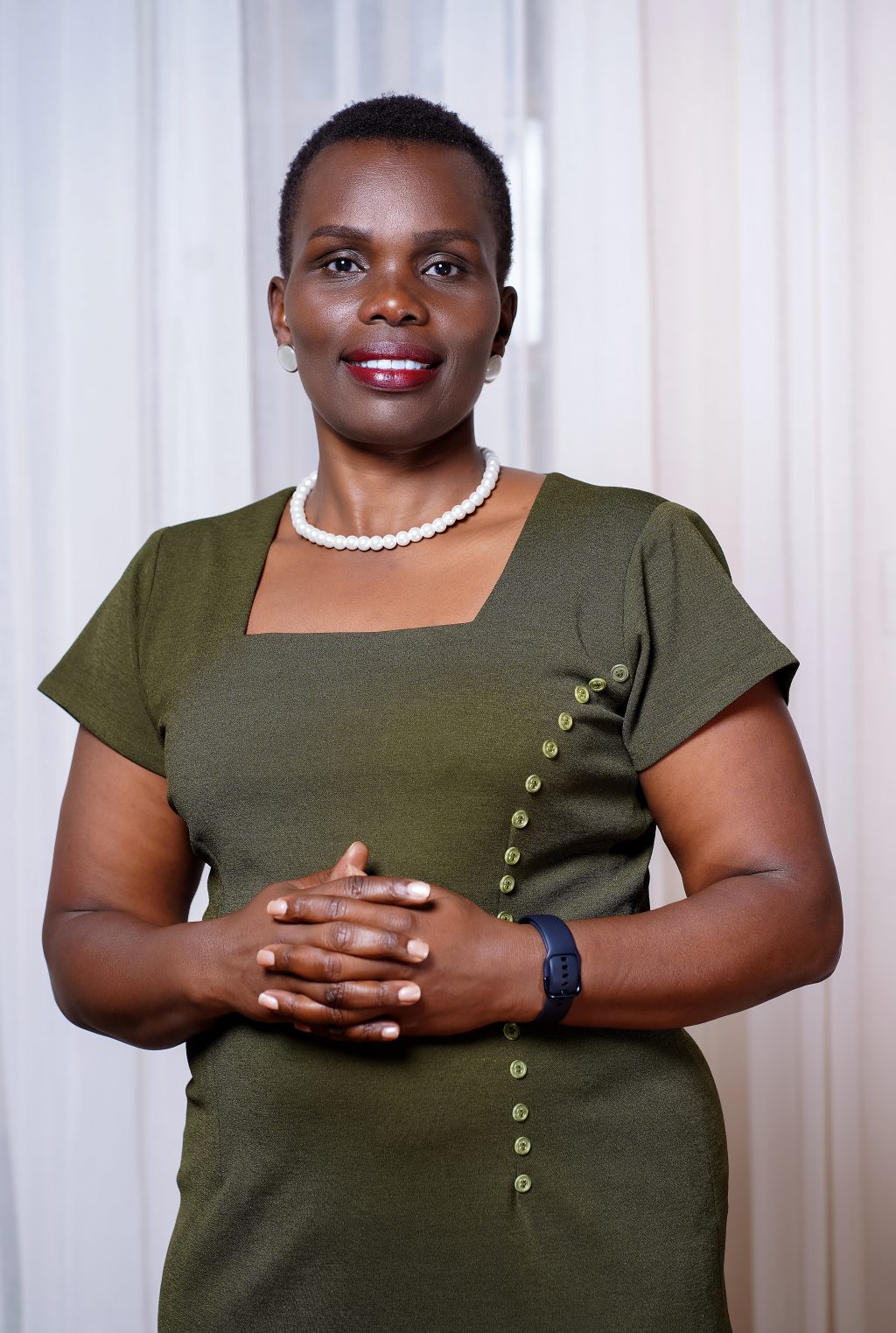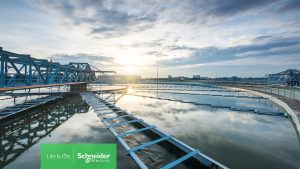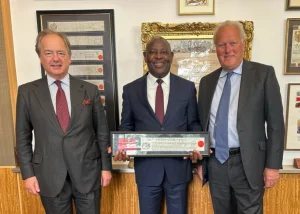
Schneider Electric prides itself as leader in digital transformation of energy and is championing for a world where everyone has access efficiency and sustainability.
By BQ Correspondent;
Kenya has seen one of the fastest growths in electrification rates in sub-Saharan Africa. The country has witnessed electrification increase from 2.3 million connections in 2013 to 8.2 million by the end of April 2021 achieving electricity access rate of over 75 per cent.
The energy scene has largely been driven by electricity automation through advanced systems which has improved the operational efficiency of its distribution.
As the country aims to reach full access by 2022 ahead of the target set in Vision 2030, it is betting on renewable energy to reach the goal. To date, at least 7 million Kenyans have been connected to the grid – or around three-quarters of the population.

In order to meet this growing demand and ensure sufficient, affordable, reliable energy supply, this calls for advanced energy management capabilities.
One such firm that has been on the forefront in driving digital transformation in the sector is Schneider Electric, a French-based company which has been working towards integrating world-leading process and energy technologies to realize the full efficiency and sustainability opportunities for businesses.
The company, founded back in 1936, develops distinct industrial and machine automation as well as process automation products and solutions for the industrial sector, including programmable relays, motion controllers and interface modules for simple machines to complex process systems for smart manufacturing.
Schneider Electric is also a provider of software for industrial automation and control through end-point to cloud integration connecting products, controls, software and services. It also delivers capabilities to transform from site-to-site to an integrated company management.
Their integrated solutions are built with safety, reliability and cybersecurity for homes, buildings, data centres, infrastructure and industries.
The Journey
The firm has over the years grown in leaps and bounds with presence spanning across the globe and equally balanced in all the geographies in the continent.
Closer home, Schneider Electric Kenya acquired Power Technics back in 2015 which has been previously operating under a licence from the French company by manufacturing their products for the local and regional market before the takeover.
Driving Schneiders growth in the East Africa is Carol Koech, she joined Schneider Electric in 2018 where she has helped transform the building’s segment and the access to energy program in East Africa.
Koech reveals that Schneider has been keen on boosting its production to capitalise on emerging opportunities in East Africa region with operations in Kenya, Uganda, Tanzania, Ethiopia, Djibouti and Eritrea.
She indicates that Schneider is an innovative company and has globally reinvested 5 per cent of their turnover to research and analysis (R&A).
“We focus largely on digitization, which has become a common platform for a lot of people, our products are smart and we continue to innovate,”
The firm has also placed emphasis on Internet of Things (IOT) with an interoperable system infrastructure platform dubbed eco-structure which allows the firm to innovate from every level right from Connected Products to Edge Control, and Apps, Analytics and Services.
“Using our energy smart tools, we are able to see where energy is getting lost, where consumption is going throughout the value chain and therefore making decisions to ensure that you are conserving and using that energy in an efficient manner,” she says.
The firm supplies solutions that cut across the market from homes, individual to the community.
Anchoring on Innovation -Ecostruxure
Schneider has been steadfast in digital-first approach to industrial automation, it recently released its latest of its software system, EcoStruxure V. 21.1, which combines energy, automation and software.
“Ecostruxure provides added value in terms of safety, reliability, efficiency, durability and connectivity, it connects the three core layers of Schneider Electric’s technology products, from connected products, to edge control, to applications, analytics and services which is consistent across our entire offers.”
This digitization, Koech says, helps them to assist their customers consolidate data from all the data sources to help them manage whatever operations they are running efficiently. The product delivers unprecedented cost and performance gains and reduces engineering cost and time as well as eliminating task duplication across tools.
“EcoStruxure is designed to meet the major challenge for customers to transparently, cost effectively and properly scale IoT solutions. We continuously analyse the data to discover the meaningful insights and then advice on what to do with the data,” she says.
Schneider Electric’s EcoStruxure has been applied in in all their market segments including healthcare, hotels, Homes, Buildings, Data Centres, Infrastructure, Industries as well as the Oil & Gas sector – areas where Schneider Electric can draw on decades of expertise and hands-on experience.
Renewable Energy
The Electric Company continues to invest in renewable energy sources and has committed to new sustainability targets.
According to Koech, Schneider Electric has looked at Sub-Saharan Africa’s energy access with a lot of focus.
She reveals that Technology is available in Sub-Saharan for the off-grid market noting that they have seen a significant decline in the cost of putting in place a renewable energy solution with the evolution of the solar generation declining over the past 10 years.
“From a policy perspective, we need a conducive tax environment as we continue investing especially in the off-grid segment. The cost of building minigrids is still very high, making most of those projects not bankable,” she says.
Through the firm’s ‘Life Is On’ tag, Schneider Electric believes that that access to energy is a basic human right and wants everyone on the planet to have access to safe, reliable, efficient, and sustainable energy.
“It is one of our accessibility agenda, and we ensure that we have affordable offers for rural communities through our energy access business,” Koech says.
She notes that as the world has evolved to become more digital and also more electric indicating that, from a power perspective, Schneider thinks and believes that buildings and industries becoming more electric could benefit from a decentralised or even local power generation.
“We have seen a revolution around Prosumers – producers and consumers of power”
Villaya Microgrid
Schneider Electric’s has underscored the importance of access to energy with the aim of providing today’s 1.3 billion people without any electricity access to reliable, safe, efficient, and sustainable energy.
To meet this demand, the firm has developed innovative off-grid products which include the Villaya collective solutions which replace diesel gensets.
Villaya solutions are central to Schneider Electric’s all-important “Access to Energy” initiative aimed at providing today’s 1.3 billion people without any electricity access to reliable, safe, efficient, and sustainable energy.
The solutions consist of a maintenance-free plug and play solar microgrid embedded in a shipping container, and enables remote control and monitoring.
“Currently, we have a containerized mini-grid offer called Villaya which is portable, Villaya emergency mobile solar microgrid solution is designed to be used in any emergency situation,
The Villaya range addresses the energy need of off-grid households, villages and micro enterprises through a range of renewable energy solutions.
This range has products and solutions for battery charging station, micro grids and solar water pumping system. These innovative solutions are specially designed to promote entrepreneurs who provide energy services in sustainable business model.
The kits are manufactured in Kenya and generates at least 10-kilowatt peak electricity enough to power a village, health centre or individual and group areas in refugee camps.
Schneider also manufactures portable off-grid lighting supplies includes solar lanterns, solar home systems as well as mini-grid solutions which can be fitted in a standard shipping container for fast, easy transport or worldwide relocation.
The firm also manufactures Villaya community which can be installed in a village, School or hospital and areas where there are no power.
Market reach
To ensure growth and that Schneider’s solutions and products reaches a wider market, the energy firm has leveraged on local partners with value chain distributors for their transactional products.
“Our strategy is to have a proper distribution network spread across the country right from large distributors who sell to wholesalers then goes to retailers then the end users can buy from them,” she says.
The firm has also partnered with panel builders and system integrators who leverage on Schneider’s solutions by purchasing their components and selling to their customer base.
Climate Change
With the diminishing energy resource especially fossil fuels, Koech sees e-mobility taking shape.
Schneider has invested heavily on technologies to tackle climate change with focus on electricity 4.0 – technology-driven revolutions towards smart energy.
“We believe an electric and digital world is key to address the climate change challenge which all of us are facing, this will enable us have a sustainable and resilient future,” she says.
She indicates that electricity from a renewable source is the best vector for decarbonization and with the digital solutions that Schneider has, it unleashes huge potential for efficiency backed with data enabling them to make the right decisions and investments.
“Our purpose as a company is to empower all and to make the most of energy and resources. We believe technology allows us to bridge progress and sustainability for all,”.
The legacy Schneider is leaving today, Koech concludes, is to have a world where ‘Life Is On’ for everyone everywhere and ensuring that everyone has access.
In 2021, Schneider Electric was ranked most sustainable company in the world out of 8,000 companies assessed by Corporate Knights. The recognition underscored the firm’s steady shift towards products and services that help customers manage their energy needs more efficiently and safely.
Schneider Electric has been committed to contributing to the SDGs through its core business and its five sustainability megatrends: Climate, Circular economy, Ethics, Health & Equity and Development.
Between 2009 and 2019, Schneider Electric has provided energy access solutions to more than 25 million people, invested in 20 companies, trained more than 250,000 people and supported more than 700 entrepreneurs. It aims to have 80 million people with electricity by 2030, 1 million people trained, and 10,000 entrepreneurs supported by 2025.
Biography
Carol Koech joined Schneider Electric in 2018 and has been instrumental in transforming the Building’s Segment and the Access to Energy program in East Africa.
Koech has over 15 years of career experience leading operations in Sub-Saharan Africa in finance, project development, engineering and commercial positions.
Prior to joining Schneider Electric, she was a senior sales manager at General Electric where she oversaw sales and customer engagements. In addition, Koech has worked at Unilever for a period of five years.
Koech holds a Bachelor’s degree in Science, Electrical & Electronic Engineering from the University of Nairobi and an MBA from Strathmore Business School. She is also a member of the Association of Chartered Certified Accountants.









